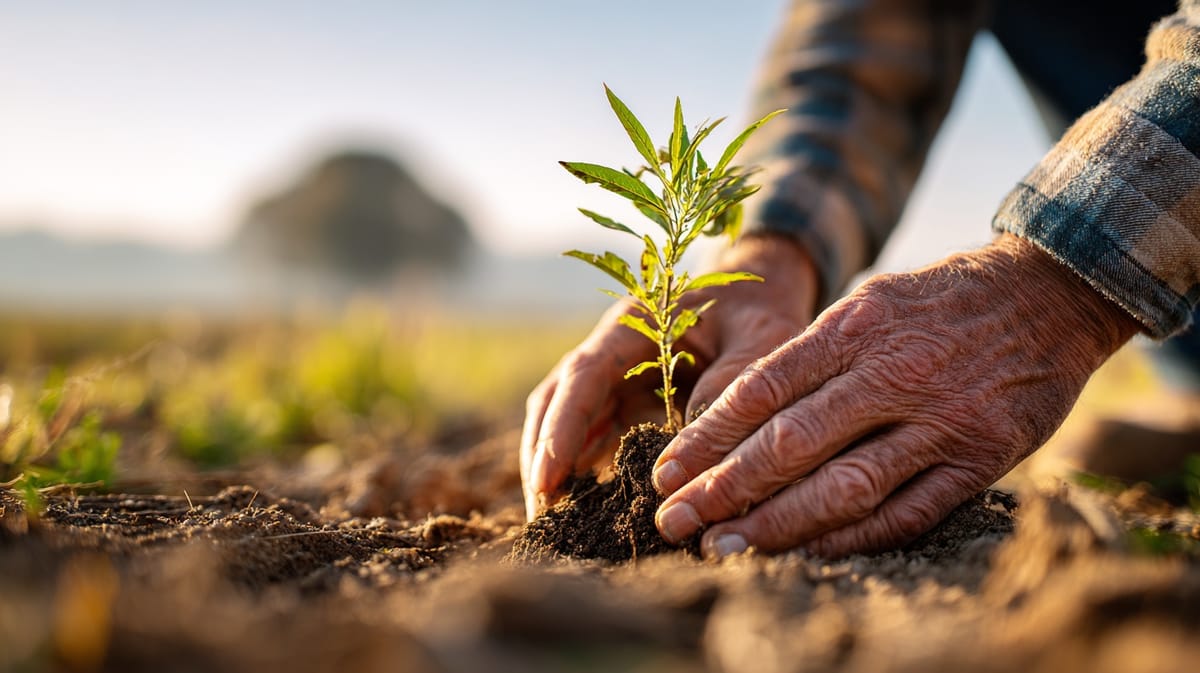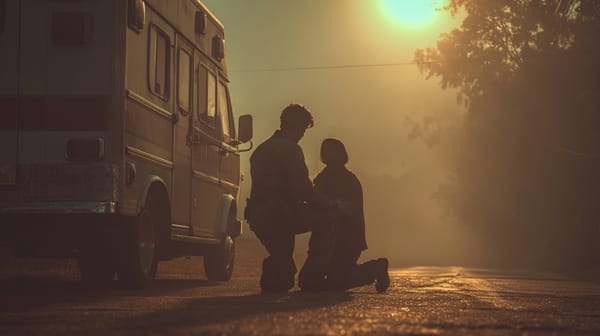Fairhaven Sermon 11-16-2025

Summary
In this week’s service, Rev. Peg Bowman began a two-week mini-series on stewardship, moving beyond the typical focus on money to explore its broader meaning as a lifestyle of care and generosity. She emphasized that stewardship isn's just about financial giving, but also about the time and resources we share with others. Drawing inspiration from John Wesley’s philosophy – “gain all you can, save all you can, give all you can” – Bowman highlighted that true stewardship involves recognizing that money, when used wisely, can be a powerful tool for good, caring for the vulnerable and working alongside God. She encouraged the congregation to find joy and connection in acts of service, mirroring the collaborative spirit seen in events like the annual gala and blessing bag creation.
Bowman further underscored the importance of generosity, emphasizing that it’s a reflection of God’s own character and a pathway to becoming more like God. She referenced readings from Jeremiah, Colossians, and Luke, focusing on themes of God’s promises, reconciliation, and the blessing of service. Ultimately, she challenged the congregation to consider how they can extend generosity – with money, time, and resources – to those in need, recognizing that their actions are a testament to God’s love and a vital part of their faith journey.
Transcript
So, this morning is the first of two weeks of a mini-series on stewardship. Yes, it's that time again. I know there are people who wince whenever they hear stewardship. Back when I was sitting in the pews all those years ago, I usually zoned out when they started talking about money, whatever.
And quite honestly, most preachers don't like to preach on money either. We don't like to sound like televangelists, and we don't want to sit around coming up with cutesy sermon titles like the Sermon on the Amount, right? Or even better, fit to be tithed, right? So...
So I'd much rather be talking about Jesus. Oddly enough, Jesus actually did talk about money fairly frequently, and there are times in the Bible when Jesus and the disciples donated money, though I think they gave compassion and healing far more often. But Jesus did talk about money and our relationship with money quite a few times. And, But what I really want to focus on today is stewardship, which is not exactly the same thing as money in general.
How we deal with money is a part of stewardship, but stewardship is more than that. Stewardship is kind of like dieting or exercise. It's something we all know that we need to do. and we make resolutions to do, and we try to keep them because we know these things are good for us, and they're good for other people as well.
And like all resolutions, stewardship can be challenging to keep. As Methodists, we can look to the example of our founder, John Wesley. who had an incredibly healthy relationship with money and the things that he owned. Most of us have heard his saying, gain all you can, save all you can, give all you can, which is a wonderful rule of thumb.
John Wesley. But Wesley's thinking went deeper than that. He gave some thought to the words of the Apostle Paul earlier, that the love of money is the root of all evil. And Wesley said that the problem is not with the money itself, but with the people who misuse it.
And Wesley also said that in the hands of God's children, money is food for the hungry and clothing for the naked. and shelter for the stranger. With money, we can care for the widow and the fatherless, defend the oppressed, and meet the needs of those who are sick or in pain. Amen.
That's John Wesley speaking. A few of us have had the opportunity to visit the house Wesley lived in in London. or we've seen pictures of it. House was a fairly comfortable one.
It was four stories high. Thin is very thin, but it's four stories high. Lots of stairs. He wasn't really wanting for anything.
At the same time, the house was not overdone. It had everything that a family of that time could want. plus extra rooms for visitors, and there are always visitors coming and going in the Wesley household. And Wesley even had a servant or two, but that house and all the people in it were guided by prayer, and I suspect very little was ever wasted there.
One of the books I've been reading lately says that stewardship is like exercise or a healthy diet. We exercise and eat right so that our bodies can be healthy, not necessarily because we enjoy exercise or health foods. So I've been thinking, okay, well, what makes diet and exercise more tolerable? I'm not one of those people that particularly cares for either, right? So how can I make this more tolerable or more fun? And I think one of the big things is it helps me to do these things with other people. For example, I have a friend in the neighborhood who I walk with on the days when she's working from home.
And on the days when she has to work in the office, I'm not as motivated to go out and walk. But when she's there, I will make that extra effort because it's more fun with her than without her. And I think sometimes that stewardship is kind of like that, too. When we give, it can be more fun to give with others.
I think maybe that's one reason why our annual gala is so popular. We can enjoy the company of friends while we're doing something for others. It's one of the reasons why small groups get together to organize the blessing bags or to stock the free pantries or to volunteer for the Christmas store. These things are more fun when we do them together.
And these things are absolutely count towards stewardship, both the things we give and the time we give. Yeah. So stewardship also is not something we do just once a year. Stewardship is a lifestyle, or at least a healthy part of a healthy lifestyle.
Stewardship is a way of living. It's our way of working alongside God. And God gives to us 24-7 all through our lives. And God is always there.
And as we grow to be more like God, we also grow to be more generous. Amen. One of the clergy magazines I read recently said, said that we pastors should share with you our stories of our own giving as encouragement. And I'm thinking, I'm not sure I agree with that.
Because I believe each one of us gives, what we give is between us and God. But I will say this, just as a follow-up to things that you've heard me preach about in the past. You've heard me say that I think you need to have a game plan. It helps to have a game plan.
And I just want to share with you a joy. God has blessed our family this year, and my game plan for giving in 2025 was reached on November 1st. Yes. Which means I have two months this year where I can give freely with no planning involved, which is really cool.
And it's exciting because that opens up more possibilities. What else can we do? Who else can we bless? And don't come up with a whole bunch of ideas I've got. If there's some good ones, let me know, though. And I pray that all of us will have this opportunity to try new things in giving.
In the reading for today from Jeremiah, we heard God's promise that God will renew God's people. And the prophecy came to the people of Israel during a very tough time in Israel's history, days actually very similar to what we're living through now. Things back then did not look good. There was division among the people.
There was trouble in the synagogues and among the religious leaders. Many people felt like they were being driven away from their faith. The people of Israel didn't know it yet, but things were about to get much worse because that reading we heard from Jeremiah was just very shortly before many of the people were taken captive to Babylon. So God sent the prophet Jeremiah with words of comfort that the people would need to hear as the world around them kept getting darker.
Babylon. God said to the people, 'I will bring them back home. I will gather my flock.' 'My people will be fruitful.
'I will send shepherds who will truly care for them. 'They don't need to be afraid anymore, 'and none of them will go missing anymore.' And how will this happen? God says, 'I will raise up for David a righteous branch, 'and he shall reign as king and deal wisely 'and shall execute justice and righteousness on the land.' God promised there was a Messiah coming, a Messiah who would be called the Lord is our righteousness.
God promises that one day all the people of Israel, both north and south, will live in peace and safety. So no matter what was happening around them back then and no matter what's happening around us now, God is in control. And therefore, we can be generous without fear. - Yeah.
In the reading from Colossians, the Apostle Paul also reminds God's people of God's goodness. Paul says that God makes us strong, prepares us to endure, rescues us from darkness, and includes us in the inheritance of the saints in God's heavenly kingdom. Amazing thoughts. We're really kind of beyond our ability to imagine, except that we know this.
In the end, it will be all good. Paul also says that Jesus himself was co-creator of heaven and earth. Jesus is the head of the church, the firstborn of the dead, He reconciles us to God, and he shows us what God looks like in human form, which is incredibly helpful to us since God is a spirit, and that's not something we can really relate to very well. Jesus shows us what God looks like, not physically, but in terms of compassion and love and leadership and teaching and healing and all the things that Jesus did when he was here with us on earth.
and Jesus will reign as king forever and ever as they say in Messiah I can hear that going on now that will handle Messiah forever let's see and Paul was so excited about this that he spends the whole next paragraph just praising Jesus, talking about how Jesus holds the world together in his hands and how Jesus is the head of the church in the beginning and the end and the first human to pass through death into life. Everything about God lives in Jesus. And Jesus made peace between a perfect God and imperfect human beings through his death and resurrection. And then finally, in the Gospel reading from Luke today, we hear the priest Zechariah, the father of John the Baptist, singing the praises of God.
Zechariah echoes Jeremiah's words in praising God for raising up a mighty Savior. It is a privilege to serve God. Zechariah says that we might serve God without fear. And it is a privilege because everything God commands is good.
And that's kind of an unusual thought, it being a privilege to serve. Most people usually feel like it's better to be in charge and to be served rather than to serve. But where God is concerned, serving is better. Because serving God means doing good things, bringing good things into the world.
And there's absolutely nothing like being able to do something that will change someone's life for the better or change someone's world for the better. Wouldn't you agree with that? I mean, what else better is there to do than to change things for the better? We naturally do good things for our families. We are naturally there for our spouses. We teach our children.
We care for our pets. But here at church, we also extend ourselves beyond our families and beyond our circle of friends as we reach out to the world. We bring blankets to the homeless and food to the hungry and welcome to the hurting. And because God has been there for us, we can be there for them.
When we do these things, we are learning to be the children of God, learning from God in much the same way that children learn from their parents. So as we think of stewardship this time of year and as we head rapidly into Thanksgiving, I want to encourage all of us, myself included, to think about ways that we can give and about people we can give to. In our giving, we can use money, which is helpful for paying for heat and light and upkeep and things like that. We can also give from what we own, our food, our clothing.
And we can also give time, as many of us already do. All of these things, all of these ways of giving are part of stewardship. in. And because life changes from year to year, how we give and how much we give may also change from year to year based on what we have, based on what the needs are, based on what God is leading us to do.
But bottom line, we give because God gives. We are generous because God is generous. And as God's children, our job is to be like God when we grow up. Right now, we are kind of like God's kids.
You know, you're trying on your parents' shoes when you're a little kid, and you slip your feet into these big shoes, and you were clomping around. Eventually we grow into those shoes. Eventually, it takes some time. But at first, it's awkward.
And we may feel like our heavenly parents' shoes are way too big for us, but our feet will grow. And when we see God, we will be like him. So having said all this, I want to wrap up by saying thank you. Thank you for reaching out to the homeless and the hungry and the hurting, and for reaching out to the addicted.
Thank you for welcoming people of all ages, nations, and orientations. Thank you for reaching out to those who are alone, especially as we approach the holidays. Thank you for caring about the stranger and the visitor and the foreigner, as well as the neighbors who come to vote here, who come to rent space here. all these people are touched by God because of what we do here.
So bottom line, God is generous, God is good, and we can never outgive God. But God is also pleased when we, as God's children, take after him and follow in God's footsteps. May we all experience the blessings of following God's lead. Amen.



